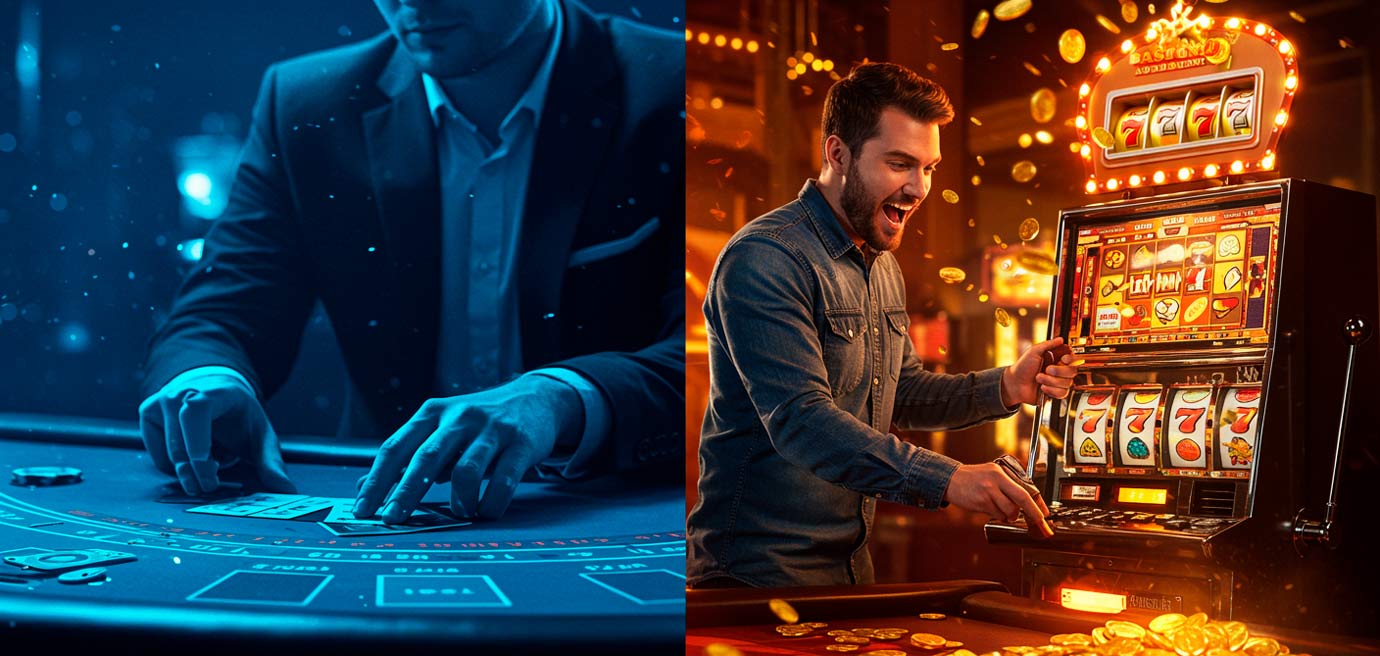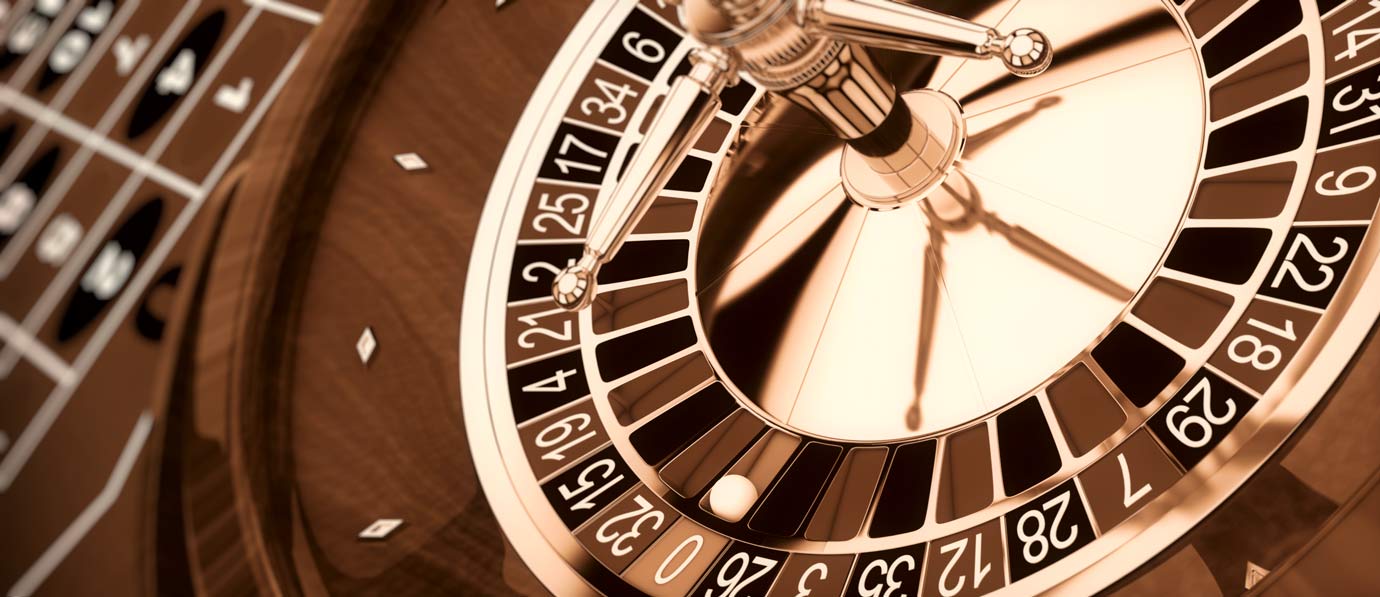Mysteries of Gambling: The Role of Probability
People mostly believe casino games operate through luck although they witness bright lights and excitement in casinos. The modern casino operates with rules of mathematics through the branch of probability to determine its outcomes. The mathematical rules casinos implement in their game systems ensure that a jackpot can happen to any player during one day yet the casino still profits throughout the year. Every $100 wagered produces a definite expected net profit for the casino at rates between 1% and 15% according to game type. While games exist with slightly tilted advantages for the house this does not prevent players from winning while casinos remain profitable because of their long-term operational advantages.
For those seeking more understanding about the world of gambling, numerous resources provide in-depth analyses. Good example is https://www.vec.ca/best-rated-online-casinos/ review of the best Canadian online casino platforms that touches upon the mathematical aspects behind the games, the importance of casino probability. Diving deeper into this subject can transform one’s perception of gambling from a game of mere chance to a more predictable science. Thus, let’s examine how these probability concepts manifest in today’s leading online casino platforms, where gambling math principles determine both game design and player experience.

Possibility of Winning in a Casino
Game | Average House Edge | Player Odds of Winning | Best Strategy | Long-Term Expectation |
|---|---|---|---|---|
Blackjack | 0.5-2% | 42-48% per hand | Use basic strategy charts, avoid insurance bets | Player loses $0.50-$2 per $100 wagered |
Roulette | European: 2.7%, American: 5.26% | European: 48.6%, American: 47.4% on even-money bets | Bet on European wheels, avoid American wheels and five-number bets | Player loses $2.70-$5.26 per $100 wagered |
Craps | 1.41% (pass line) to 16.67% (proposition bets) | 49.3% on pass line, varies widely for other bets | Stick to pass/don’t pass with odds bets, avoid proposition bets | Player loses $1.41-$16.67 per $100 wagered depending on bet type |
Slot Machines | 5-15% typically | Highly variable (85-95% return-to-player) | Play machines with higher RTP percentages, use maximum coins | Player loses $5-$15 per $100 wagered |
Video Poker | 0.5-5% | Up to 99.5% with perfect play on select games | Use strategy charts, play full-pay machines, bet maximum coins | Player loses $0.50-$5 per $100 wagered with optimal play |
The Basics of Probability
Probability, in its simplest form, measures the likelihood of a specific event occurring. In gambling, this is commonly referred to as the ‘odds’. For example, in a basic game of dice where you roll a standard six-sided die, the casino probability of rolling a particular number, say 3, is 1 in 6 or 16.67%.
How Probability is Used in Casinos
- The Maths behind Game Design & House Edge: The gambling math behind the design of every casino game involves giving a slight advantage to the casino (typically 1-15%) to ensure that over time, the casino remains profitable but the individual player can win.
- Random Number Generators (RNGs): Modern slot machines and online games rely on complicated algorithms to create genuinely random results that cannot be predicted, while ensuring that returns on average meet the specifications of the game.
- Payout Ratios: Casinos pay out at odds slightly lower than the true mathematical odds (for example, paying 35:1 on a 37:1 roulette bet), creating an edge which guarantees profit over thousands of plays.
- Game Selection Strategy: Casinos know that a mixture of games with different house edges (high edge = slots at 5-15% ~ low edge = blackjack at 0.5-2%) is most lucrative and profit making, therefore it is guaranteed that they will not just have high edge games.
- Variance management: Casinos hold mountains of cash in reserves, allowing them to survive short term upswings from players; under the law of large numbers, they know they will be winners in the longer run.
- Comp Systems: Player reward programs are mathematical up to theoretical loss (house edge × amount wagered), which allows casinos to provide perks and still turn a profit.
- Table Limits: Casinos implemented minimum and maximum betting limits to generate protection against lucky players who may otherwise beat the house-edge with massive bets.
- Wealth of Game Rules Changes: Little rules changes (like blackjack paying 6:5 instead of 3:2) increase house edge substantially whilst seeming like they are minor changes to casual customers.
- Progressive Jackpots: These jackpots are seeded from a small percentage of every bet taken, and the chances of winning are set incredibly low (often in the millions to one) so these are build up for profit for the casino.
- Psychological Triggers: They exploit cognitive biases by offering near misses, occasional wins, and sensory stimulation to induce replaying despite the mathematical disadvantage.
The House Edge and Odds
Almost every casino game has a ‘house edge’, which is the advantage the casino has over the player. This ensures that over the long run, the house will always have a slight edge in winning. The games are designed in such a manner that while players might win occasionally, statistically speaking, the casino is more likely to come out on top.
For example, in European Roulette, where the wheel has 37 numbers, including a single zero, the true odds of landing on a single number are 1 in 37. However, if you do win, the house pays only 35 to 1. That difference between true odds and payout odds gives the house its edge.
What Casino Game has the Best Probability?
Game | Average House Edge | Player Odds of Winning | Best Strategy | Long-Term Expectation |
|---|---|---|---|---|
Baccarat | 1.06% (Banker), 1.24% (Player) | ~44.6% (Banker), ~44.9% (Player) per bet | Bet on Banker for lowest edge; avoid Tie bets (14.36% house edge). | Player loses $1.06-$1.24 per $100 wagered. |
Pai Gow Poker | 1.5% – 2.5% | ~41-45% per hand | Learn basic hand-setting rules; act as banker when offered to reduce house edge. | Player loses $1.50-$2.50 per $100 wagered. |
Three Card Poker | 2% – 3.5% (Pair Plus), 3.4% (Ante) | ~44% (Ante), varies for Pair Plus | Play Ante with Q-6-4 or better; avoid Pair Plus unless high payouts offered. | Player loses $2-$3.50 per $100 wagered. |
Casino War | 2.88% (go to war), 7.47% (surrender) | ~46.3% per round | Always go to war on ties; avoid side bets like Tie wager (18.65% house edge). | Player loses $2.88-$7.47 per $100 wagered. |
Caribbean Stud Poker | 5.22% (main bet) | ~44% per hand | Fold with less than Ace-King high; raise with strong hands; avoid progressive bets. | Player loses ~$5.22 per $100 wagered. |
Using Probability to Make Informed Bets
Understanding casino probability can significantly enhance a player’s ability to make more informed betting decisions. While no strategy guarantees a win, applying probability concepts can help players manage their expectations, reduce losses, and increase the potential for success over time.
Bet Sizing and Bankroll Management: Using Probability to Manage Risk and Reward
Your gambling success depends heavily on how well you manage your gambling finances. Probability serves as a vital tool for bet size determination through strategic betting times which helps players reach top winnings with lower financial exposure. The fundamental principle in this concept remains expected value (EV). Through EV calculations players determine what win or loss amounts they expect according to distinct outcome probabilities.
For example, if a player has a 50% chance of winning a bet that pays 2:1, the expected value would be:
- EV = (0.5 × 2) – (0.5 × 1) = 0.5.
This means the player can expect to win 0.5 units per bet in the long run, based on these odds. This can guide betting sizes – if the expected value is positive, a player might choose to increase their bet size, whereas a negative EV would suggest reducing the bet size or walking away from the game.
Advanced Strategies: Using Casino Probability to Improve Your Odds
For the ones who would want to delve deeper into the understanding of probability, card counting in Blackjack are advanced betting strategies that might give the player an advantage over the casino. Card counting refers to keeping track of the ratio of high to low cards left in the deck, so the players can vary their bets according to the chances of getting a good card or not. Not bulletproof (and generally discouraged at, or outright banned within, most casinos), card counting can though, when employed properly, tilt the odds against the house and toward the player. Another highly strategic approach bets aspects that players can use based on our winnings losing – these examples would be the Martingale or the Paroli system. Such systems don’t alter the fundamental odds of the probability casino games themselves, but they assist players in controlling their betting behavior in relation to winning or losing streaks.

Common Misconceptions
Even though casino games have clear mathematical frameworks, there are many players who you know keep believing the wrong things that affect their decisions in a bad way. Knowing what is fact and what is fiction is key in making intelligent and reasonable betting decisions. Here, we clarify some of the most common fallacies – and show how they work in conflict with the actual probabilities that govern casino games.
- The Gambler’s Fallacy
The Gambler’s Fallacy is the assumption that if one specific outcome has happened a lot in the past, it is less likely to occur in the future and the other way around. A familiar example of this fallacy is found in roulette, where players may think that if red has shown up several times in a row, black is now “due” to show up next.
Reality Check: Playing the games of chance examples (known as roulette), each spin of the wheel is independent, and the odds are identical every time, no matter what came before. The chance of landing on red or black is equal with every spin, and the previous spins do not have any bearing on the next ones. The house edge of a casino is embedded into how the game is constructed, not on the order of what happens.
- The “Due” Phenomenon
People experience a false belief that a win is due when they suffer successive losing outcomes in the “Due” Phenomenon. Playing slots gives players the feeling that their machine will eventually hit the jackpot even though they have experienced multiple successive losses.
Reality Check: Statistics show that slot machine operations are controlled by Random Number Generator (RNG) software and spins remain independent from what happened before. The gaming machine does not track past results and remains impartial to all previous outcomes. Its operation process stays the same irrespective of former events. A slot machine determines jackpot chances only through its programmed mechanisms because the outcomes do not depend on previous wins or losses.

- Skill vs. Chance in Casino Games
A large number of players make incorrect assumptions that skill determines the entire outcome of player-driven games like poker and blackjack but completely random chance rules games of fortune like roulette and slots. Skilled individuals play a significant part in poker or blackjack games but they cannot remove completely all elements of luck or chance from the game.
Reality Check: Every game that operates in casinos contains built-in probabilities because all casino activities are either based on luck or expertise. Although skilled poker players maintain higher chances of winning their success in the game remains determined by random distribution of card deals. The house edge diminishes when using basic strategy in blackjack yet outcome results from the shuffled cards and the particular hands drawn. Skill lowers chances of risk yet it does not eliminate all danger factors.
Return to Player (RTP) and Its Importance in Gambling
The Return to Player (RTP) is an important principle in casino games that determines how probabilities are manifested. It is the percent of all the money wagered that a game is projected to pay back to players over time. RTP serves as a guide to players the potential for winning or losing in the long run. This section delves into the technicalities of RTP calculation and mathematical relationship to gambling probability, variation of RTP between different casino games.
How RTP is Calculated
What is RTP? RTP can be calculated by dividing what percent total wagers thrown into a game are expected to return to players over a particular,”X” number of rounds or spins. This means that if a slot game has an RTP of 95%, it returns $95 out of every $100 put into it on average.
Formula:
- RTP (%) = (Total payouts / Total wagers) × 100
RTP is based on the mathematical probability of each game outcome, factoring in the paytable, odds of winning, and the size of each payout.
RTP’s Relation to Game Probability
RTP is directly linked to probability It’s based on the possibility of certain events occurring in the long run. In short, a higher RTP means higher chances of winning back at least some of the money wagered. But lower RTP means games carry a high house edge, making losing money inevitable in the long run.
RTP differs for various kinds of casino games, with video slots typically featuring lower RTP when compared to table games such as blackjack, baccarat, and video poker. And this is because the slots are configured for more consistent, smaller wins, while the table games generally pay out larger units, at favorable odds.
Here’s a comparison of RTP values for various popular casino games:
Game | RTP Range | House Edge | Average Odds of Winning | Game Type |
|---|---|---|---|---|
Slot Machines | 85% – 98% | 2% – 15% | Highly variable (85-95%) | Game of Chance |
Blackjack | 99.5% | 0.5% | 42-48% per hand | Game of Skill |
European Roulette | 97.3% | 2.7% | 48.6% on even-money bets | Game of Chance |
American Roulette | 94.74% | 5.26% | 47.4% on even-money bets | Game of Chance |
Craps | 98.59% | 1.41% on pass line | 49.3% on pass line | Game of Chance |
Baccarat | 98.94% | 1.06% (Banker) | 44.6% (Banker), 44.9% (Player) | Game of Chance |
Video Poker | 99.5% (perfect play) | 0.5% to 5% | Up to 99.5% with perfect play | Game of Skill |

Comparing Games with High and Low RTP
Games with High RTP:
- The RTP of Blackjack reaches 99.5% because it combines minimal house advantage with strategic playing ability that minimizes casino benefits. The implementation of basic strategy strategies regularly enhances a gambler’s opportunities for success.
- The RTP in Video Poker reaches 99.5% when players use optimal strategy so this becomes one of the most lucrative games in the casino.
Games with Low RTP:
- The RTP range of slot machines seems diverse from 85% to 98% but their progressive variations often fall at an incredibly low 85% RTP level. Numerous players subscribe to slot machines due to the potential huge payouts even though the RTP is lower.
- You will find a decreased RTP of 94.74% in American Roulette because it includes a double-zero (00) on its wheel which boosts the house advantage.
Probability and Casino Bonuses
Casino bonuses that are offered or provided to a player as welcome bonuses and free spins can influence winning probability, but they also have terms that affect your chances. Mostly, bonuses have wagering requirements attached to them; these rules tell you how many times you should bet the bonus amount before the winnings can be withdrawn. Take, for example, in case when a casino gives you a $100 bonus with a 30x wagering requirement; this means you would have to wager $3,000 before making a withdrawal.
- Slots give the most chances to win by contributing 100% to wagering.
- Table games contribute less (10 to 20%), so you would have to wager more in order to fulfill the same requirements.
Bonuses notwithstanding, the house edge would still take precedence, meaning that casinos will keep winning in the long run.
Calculating the Bonus Effect
To see the bonus´s impact on your odds, the RTP (Return to Player) of the game being played and the wagering requirements in question must be included. High RTP and low wagering requirements mean an increase in the value of the bonus and, thus, an improved expected return.
Understanding probability can enhance your decision making, but you will not always win. But even with insight into odds, every outcome is still a matter of chance. Probability can inform your strategy, but you need to temper your expectations. Be a responsible gambler – make time and money limit, keep in mind that gambling is for fun – not for money. There is such a large element of chance even if you play it well.
Responsible Gambling
When in doubt, always remember to gamble with control; responsible gambling is crucial! It is about understanding the risks related to gambling, making limits, and knowing when to walk away. Responsible gambling allows players to reduce harm, make informed decisions and prevent addiction.
Five Core Concepts of Responsible Gambling
- Set Limits: Determine how much time and money you will spend gambling. This helps you stay within your gambling budget and keeps it as a form of entertainment.
- Gamble for Fun, Not Money: Gambling is a form of entertainment, not a way to make money. Just remember the house always wins in the long run.
- Know when to call it quits: If gambling ceases to be entertaining or you start feeling like you’ve lost control, it’s essential to take a step back. Many casinos offer systems that allow you to set time or money limits on your play, or even self-exclude, if you need to.
- Ask For Help If Necessary: If you feel that your betting is turning into an issue, don’t be afraid to ask for help. There are numerous organizations that provide support and assistance for gambling addiction and recovery.
Recent developments in gambling concern practices that promote responsible gambling, responsible gaming, and awareness among users. It is important to recognise the risks and to ensure we play within our means to help to keep gambling enjoyable and safe.
FAQs
Any player willing to use the information in gambling luck must understand the odds and probabilities behind casino games. Below are some typical questions commonly asked about probability in gambling, house edge, and how it factors into your gaming experience.
Bonus offers, such as free spins or welcome offers qualify your deposits, thus increasing your chances of winning even higher. Most bonuses come with wagering requirements, however, which must be met before any winnings are able to be withdrawn. Although they offer you more opportunities to play, bonuses do not affect the overall likelihood of winning, since the house advantage stays the same.
Gambling probability is used for determining the chance of a specific outcome happening and one way or the other is incorporated into the workings of every casino game. For example, in case of roulette, the probability of the ball landing on red is 18 over 37 in European roulette. Hence, while probability will help you form an idea about the odds, luck also plays an important distinguish in any outcome.
The house edge is the advantage of the casino, contrary to the players, in any game. It states that more often than not, the house would win than the player would. For example, in blackjack, an edge of 0.5% might apply with perfect strategy, while slot games would have an edge of 5% to15%. The greater the house edge is, the less chance you have of winning in the long run.





